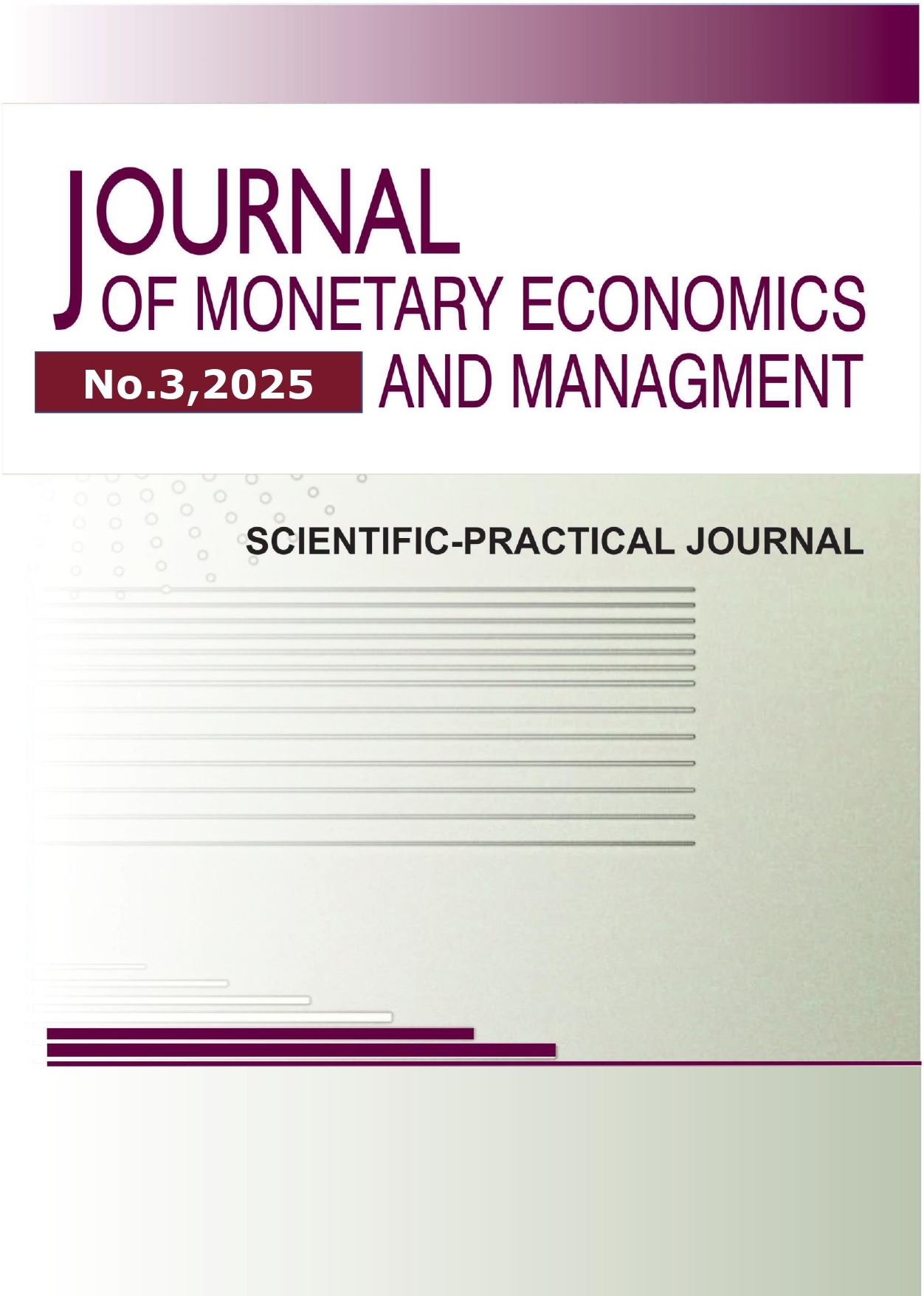graduate student
The article presents the results of a systematic analysis of proven examples of successful practical implementation of technological solutions based on artificial intelligence in key business processes of companies operating in the modern digital economy. All of these examples have passed mandatory quantitative verification of the results achieved as of early 2025. The business areas in which the use of neural network algorithms demonstrates maximum efficiency have been identified and analyzed. Among them are: customer service, marketing, software development, financial technology, healthcare and logistics. Based on empirical data, key factors influencing the successful integration of AI-based software solutions into companies' activities have been identified. The prospects of using neural network tools in the context of the Russian economy implementing a catch-up development strategy are considered.
digital economy, neural network technologies, machine learning, automation of business processes, labor productivity, introduction of AI, economic growth
1. Bayramov S. Internet-banking v usloviyah cifrovizacii ekonomiki / S. Bayramov, N. I. Lomakin // Vzaimodeystvie predpriyatiy i vuzov – nauka, kadry, novye tehnologii : sbornik dokladov XVII mezhregional'noy nauchno-prakticheskoy konferencii, Volzhskiy, 12–13 maya 2022 goda / otv. za vypusk G. M. Butov. – Volzhskiy : Volgogradskiy gosudarstvennyy tehnicheskiy universitet, 2022. – S. 91–93. – EDN NTWYEU.
2. Starodubceva E. B. Modeli dogonyayuschego razvitiya: vozmozhnosti dlya Rossii / E. B. Starodubceva // Uchenye zapiski Krymskogo federal'nogo universiteta imeni V.I. Vernadskogo. Ekonomika i upravlenie. – 2020. – T. 6, № 3. – S. 112–119. – EDN JCCCYW.
3. Yakov i Partnery, Yandeks. Iskusstvennyy intellekt v Rossii – 2023: trendy i perspektivy. – 2023. – URL: https://www.yakov.partners/upload/iblock/c5e/c8t1wrkdne5y9a4nqlicderalwny7xh4/20231218_AI_future.pdf (data obrascheniya: 29.03.2025).
4. Adhvaryu, A. The Path to Generative AI Value Begins with a Workforce Diagnostic / A. Adhvaryu, A. Bailey, F. Breitling, T. Fenton, J. Koike. – Boston Consulting Group, 2023. – URL: https://www.bcg.com/publications/2023/assessing-the-impact-of-generative-ai-on-workforce-productivity (data obrascheniya: 29.03.2025).
5. Ayers, J. W. Comparing Physician and Artificial Intelligence Chatbot Responses to Patient Questions Posted to a Public Social Media Forum / J. W. Ayers, A. Poliak, M. Dredze et al. // JAMA Internal Medicine. – 2023. – Vol. 183(6). – P. 589–596. – DOI:https://doi.org/10.1001/jamainternmed.2023.1838.
6. Baily, M. N. Machines of mind: The case for an AI-powered productivity boom / M. N. Baily, E. Brynjolfsson, A. Korinek. – Brookings, 2023. – URL: https://www.brookings.edu/articles/machines-of-mind-the-case-for-an-ai-powered-productivity-boom/ (data obrascheniya: 29.03.2025).
7. Brynjolfsson, E. Generative AI at Work / E. Brynjolfsson, D. Li, L. R. Raymond // NBER Working Paper No. 31161. – National Bureau of Economic Research, 2023. – URL: https://www.nber.org/system/files/working_papers/w31161/w31161.pdf (data obrascheniya: 29.03.2025).
8. Carobene, A. Rising adoption of artificial intelligence in scientific publishing: evaluating the role, risks, and ethical implications in paper drafting and review process / A. Carobene, A. Padoan, F. Cabitza et al. // Clinical Chemistry and Laboratory Medicine. – 2023. – Article 1136. – DOI:https://doi.org/10.1515/cclm-2023-1136.
9. Charles, L. Digitalization and Employment: A Review / L. Charles, S. Xia, A. P. Coutts. – International Labour Organization, 2022. – URL: https://www.ilo.org/publications/digitalization-and-employment-review (data obrascheniya: 29.03.2025).
10. Chen, L. How Is ChatGPT’s Behavior Changing over Time? / L. Chen, M. Zaharia, J. Zou. – 2023. – URL: https://arxiv.org/pdf/2307.09009v1 (data obrascheniya: 07.06.2024).
11. Chui, M. The Economic Potential of Generative AI: The Next Productivity Frontier / M. Chui, E. Hazan, R. Roberts et al. – McKinsey & Company, 2023. – URL: https://www.mckinsey.com/capabilities/mckinsey-digital/our-insights/the-economic-potential-of-generative-ai-the-next-productivity-frontier (data obrascheniya: 29.03.2025).
12. Deloitte. Now decides next: Getting real about Generative AI / N. Mittal, B. Sniderman, C. Perricos, D. Jarvis. – Deloitte’s State of Generative AI in the Enterprise Quarter two report, 2024. – URL: https://www2.deloitte.com/content/dam/Deloitte/us/Documents/consulting/us-state-of-gen-ai-report-q2.pdf (data obrascheniya: 29.03.2025).
13. Eloundou, T. GPTs are GPTs: An Early Look at the Labor Market Impact Potential of Large Language Models / T. Eloundou, S. Manning, P. Mishkin, D. Rock. – 2023. – URL: https://ar5iv.labs.arxiv.org/html/2303.10130 (data obrascheniya: 29.03.2025).
14. Korn Ferry Institute. Talent Acquisition Trends Report 2024. – Korn Ferry, 2024. – URL: https://www.kornferry.com/insights/featured-topics/talent-recruitment/talent-acquisition-trends-2024 (data obrascheniya: 29.03.2025).
15. QuantumBlack, AI by McKinsey. The State of AI in 2023: Generative AI’s Breakout Year. – McKinsey & Company, 2023. – URL: https://www.mckinsey.com/capabilities/quantumblack/our-insights/the-state-of-ai-in-2023-generative-AIs-breakout-year (data obrascheniya: 29.03.2025).
16. World Economic Forum. Future of Jobs Report 2023. – Geneva : WEF, 2023. – URL: https://newsletter.radensa.ru/wp-content/uploads/2023/11/WEF_Future_of_Jobs_2023.pdf (data obrascheniya: 29.03.2025).
17. Zuo, B. The Impact of Artificial Intelligence on Business Operations / B. Zuo, A. Poliak, M. Dredze et al. // Global Journal of Management and Business Research: D Accounting and Auditing. – 2024. – Vol. 24, No. 1. – Pp. 1–8. – DOI:https://doi.org/10.34257/GJMBRDVOL24IS1PG1.









